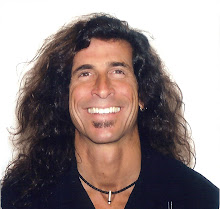
As much as half of the energy used in your home goes to heating and cooling. As a result, making smart decisions about your home's heating, ventilating, and air conditioning (HVAC) system can have a big effect on your utility bills — and your comfort. Take these steps to increase the efficiency of your heating and cooling system.
Change your air filter regularly
Check your filter every month, especially during heavy use months (winter and summer). If the filter looks dirty after a month, change it. At a minimum, change the filter every 3 months. A dirty filter will slow down air flow and force the system to work harder to keep you warm or cool — wasting energy. A clean filter will also prevent dust and dirt from building up in the system — leading to expensive maintenance and/or early system failure.
Tune up your HVAC equipment yearly
Just as a tune-up for your car can improve your gas mileage, a yearly tune-up of your heating and cooling system can improve efficiency and comfort.
Install a programmable thermostat
A programmable thermostat is ideal for most of us who are away from our homes during set periods of time throughout the week. Through proper use of pre-programmed settings, a programmable thermostat can save you hundreds of dollars every year in energy costs.
Seal your heating and cooling ducts
Ducts that move air to and from a forced air furnace, central air conditioner, or heat pump are often big energy wasters. Sealing and insulating ducts can improve the efficiency of your heating and cooling system by as much as 20 percent — and sometimes much more.
Focus first on sealing ducts that run through the attic, crawlspace, unheated basement, or garage. Use duct sealant (mastic) or metal-backed (foil) tape to seal the seams and connections of ducts. After sealing the ducts in those spaces, wrap the ducts in insulation to keep them from getting hot in the summer or cold in the winter. Next, seal ducts that you can access in the heated or cooled part of the house.
Overview
If your HVAC equipment is more than ten years old or not keeping your house comfortable, you should have it looked at by a professional HVAC contractor. If it is not performing efficiently or needs upgrading, consider replacing it with an Energy Star unit. Installed correctly, these high-efficiency heating and cooling units can save up to 20 percent on heating and cooling costs. As a precaution, before you invest in a new HVAC system, make sure that you have addressed the big air leaks in your house and the duct system. Sometimes, these are the real sources of problems rather than your HVAC equipment.
Remember that getting the proper size HVAC system and a quality installation is essential to getting the most from your new equipment. When replacing HVAC equipment, bigger doesn't always mean better. If the unit is too large for your home, you will be less comfortable and might actually have higher utility bills. Oversized equipment will operate in short run cycles, not allowing the unit to reach efficient operation and remove humidity from the air — resulting in an uncomfortable home.
Please feel free to contact me for referrals should you wish to have your HVAC system inspected to ensure maximum efficiency and comfort, not to mention reduced energy bills and a reduction in your carbon footprint.


No comments:
Post a Comment